#Google is Evil
Text
Skip Google for Research
As Google has worked to overtake the internet, its search algorithm has not just gotten worse. It has been designed to prioritize advertisers and popular pages often times excluding pages and content that better matches your search terms
As a writer in need of information for my stories, I find this unacceptable. As a proponent of availability of information so the populace can actually educate itself, it is unforgivable.
Below is a concise list of useful research sites compiled by Edward Clark over on Facebook. I was familiar with some, but not all of these.
⁂
Google is so powerful that it "hides" other search systems from us. We just don't know the existence of most of them. Meanwhile, there are still a huge number of excellent searchers in the world who specialize in books, science, other smart information. Keep a list of sites you never heard of.
www.refseek.com - Academic Resource Search. More than a billion sources: encyclopedia, monographies, magazines.
www.worldcat.org - a search for the contents of 20 thousand worldwide libraries. Find out where lies the nearest rare book you need.
https://link.springer.com - access to more than 10 million scientific documents: books, articles, research protocols.
www.bioline.org.br is a library of scientific bioscience journals published in developing countries.
http://repec.org - volunteers from 102 countries have collected almost 4 million publications on economics and related science.
www.science.gov is an American state search engine on 2200+ scientific sites. More than 200 million articles are indexed.
www.pdfdrive.com is the largest website for free download of books in PDF format. Claiming over 225 million names.
www.base-search.net is one of the most powerful researches on academic studies texts. More than 100 million scientific documents, 70% of them are free
212K notes
·
View notes
Text
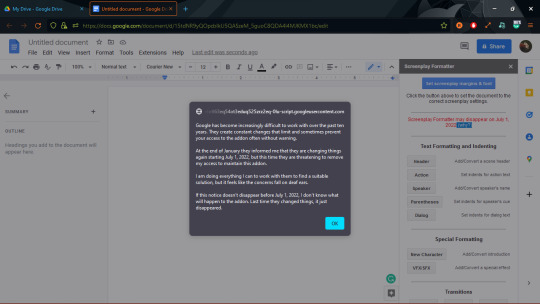
wtf
Text in picture;
If this notice doesn’t disappear before July 1, 2022, I don’t know what will happen to the addon. Last time they changed things, it just disappeared.
If this notice doesn’t disappear before July 1, 2022, I don’t know what will happen to the addon. Last time they changed things, it just disappeared.
If this notice doesn’t disappear before July 1, 2022, I don’t know what will happen to the addon. Last time they changed things, it just disappeared.
If this notice doesn’t disappear before July 1, 2022, I don’t know what will happen to the addon. Last time they changed things, it just disappeared.
2 notes
·
View notes
Text
Hostile Sun Dev Log 1
Under a Hostile Sun Dev Log 1: Environmental Encounters
Hello All! I am starting a Dev Log on Rumble (not YouTube, because I am fairly disgusted with Google and Gemini at the moment) where I go through different aspects of the game.
If you are interested in hearing me go through and verbally discuss each aspect of the game, please follow me on Rumble!
Learn about Under a Hostile Sun

View On WordPress
#alien#aliens#Dev Log#Development Log#fiction#Google is Evil#Indie RPG#martians#politics#rpg#science fiction#Tabletop RPGs#Under a Hostile Sun
0 notes
Text
Have you noticed how awful Google's Search Engine has been lately. Just nonsensical results of their clients.
And how dirty they are playing with adblockers. Even fucking up Google Images on Firefox to drive people away from ad blockers.
And away from the only decent browser left that kinda respects our privacy.
Jokes on them. I'm using Edge to use my photo library now. Might as well let Bill Gates know what I think of him.
#ph4wg#ph4wg original#Google is evil#really#divest your shit from Google#don't get trapped with your photos and files#and maybe find a host like Dropbox that is excellent about privacy#if you figure out how to send your pics to a different upload app that synchs with a server and can be used on a pc by an aging Gen Xer#help a brother out
0 notes
Text



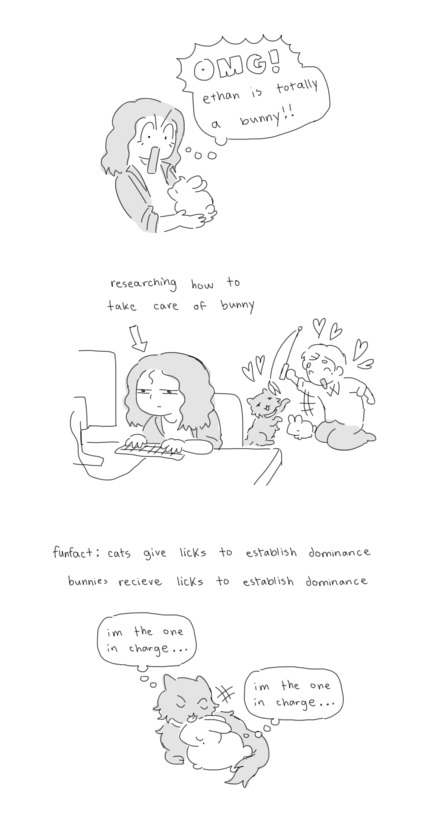
#ethan winters#mia winters#mithan#resident evil#resident evil fanart#rebhfun#resident evil 7#re7#bunny and kittayy...#forgive mia she doesnt know how to hold bunnies#shes googling it rn though#bunny ethan chews up mias wires whenver shes about to email the connections for another job and kills her computer 😭
3K notes
·
View notes
Text
Some general rules to live by:
1) Don't take out loans for homes you can't afford.
2) Don't get degrees your can never pay for.
3) Don't take jobs at mega corporations and expect to work there forever.
I don't mean to victim blame but how are people surprised when they let giant banks and corporations take advantage of them? Of course you're going to lose the home you can't afford. Of course you're going to be in student debt with a worthless degree. And of course you're going to eventually be laid off. None of these contracts you're entering into are really ever designed to actually benefit you. Why would you ever think otherwise? In a perfect world housing would be outlawed from being treated as a commodity, college would be free, and corporations wouldn't be beholden to the wretched shareholder. But that's not where we're at and I honestly don't understand how the community operates as if that's where we were.
I guess the overall makeup of society's mental maturity is at the level of a toddler. I feel bad for people who lost a home, went into debt, and lost a job. I do. I'm actually in student debt too. But it's also time to end "acting shocked" when you get shitty results from un-thought out bad decisions.
Instead of propping up predatory capitalism can we all consider burning these fuckers down, please?
#google#Google is evil#make smart decisions#make good choices#school should be free#housing shouldn't be used as swiss bank accounts#mega corporations shouldn't exist#fuck the shareholder#predatory capitalism#capitalism
1 note
·
View note
Text
I get all my professional social cues from Gmail's prepared responses.
#what did i ever do without them?#google is evil#but it's also a good 50% of my professional skills sooooooo#hard week at the jobs lads
0 notes
Text


My partner asked me to draw evil Wheatley
#Wheatley#glados#chell portal#portal 2#mathes0nart#giving him this cool tech android villain design is so cool and awesome#but what if he dressed like an evil oil baron#what if he googled ‘smart handsome guy’ and raided glados’s private butch collection to dress the part#I can’t emphasize how much I love this man and how it’s so important to me that he’s so stupid#dumbass rep
445 notes
·
View notes
Text
The moral injury of having your work enshittified

This Monday (November 27), I'm appearing at the Toronto Metro Reference Library with Facebook whistleblower Frances Haugen.
On November 29, I'm at NYC's Strand Books with my novel The Lost Cause, a solarpunk tale of hope and danger that Rebecca Solnit called "completely delightful."

This week, I wrote about how the Great Enshittening – in which all the digital services we rely on become unusable, extractive piles of shit – did not result from the decay of the morals of tech company leadership, but rather, from the collapse of the forces that discipline corporate wrongdoing:
https://locusmag.com/2023/11/commentary-by-cory-doctorow-dont-be-evil/
The failure to enforce competition law allowed a few companies to buy out their rivals, or sell goods below cost until their rivals collapsed, or bribe key parts of their supply chain not to allow rivals to participate:
https://www.engadget.com/google-reportedly-pays-apple-36-percent-of-ad-search-revenues-from-safari-191730783.html
The resulting concentration of the tech sector meant that the surviving firms were stupendously wealthy, and cozy enough that they could agree on a common legislative agenda. That regulatory capture has allowed tech companies to violate labor, privacy and consumer protection laws by arguing that the law doesn't apply when you use an app to violate it:
https://pluralistic.net/2023/04/12/algorithmic-wage-discrimination/#fishers-of-men
But the regulatory capture isn't just about preventing regulation: it's also about creating regulation – laws that make it illegal to reverse-engineer, scrape, and otherwise mod, hack or reconfigure existing services to claw back value that has been taken away from users and business customers. This gives rise to Jay Freeman's perfectly named doctrine of "felony contempt of business-model," in which it is illegal to use your own property in ways that anger the shareholders of the company that sold it to you:
https://pluralistic.net/2023/11/09/lead-me-not-into-temptation/#chamberlain
Undisciplined by the threat of competition, regulation, or unilateral modification by users, companies are free to enshittify their products. But what does that actually look like? I say that enshittification is always precipitated by a lost argument.
It starts when someone around a board-room table proposes doing something that's bad for users but good for the company. If the company faces the discipline of competition, regulation or self-help measures, then the workers who are disgusted by this course of action can say, "I think doing this would be gross, and what's more, it's going to make the company poorer," and so they win the argument.
But when you take away that discipline, the argument gets reduced to, "Don't do this because it would make me ashamed to work here, even though it will make the company richer." Money talks, bullshit walks. Let the enshittification begin!
https://pluralistic.net/2023/11/22/who-wins-the-argument/#corporations-are-people-my-friend
But why do workers care at all? That's where phrases like "don't be evil" come into the picture. Until very recently, tech workers participated in one of history's tightest labor markets, in which multiple companies with gigantic war-chests bid on their labor. Even low-level employees routinely fielded calls from recruiters who dangled offers of higher salaries and larger stock grants if they would jump ship for a company's rival.
Employers built "campuses" filled with lavish perks: massages, sports facilities, daycare, gourmet cafeterias. They offered workers generous benefit packages, including exotic health benefits like having your eggs frozen so you could delay fertility while offsetting the risks normally associated with conceiving at a later age.
But all of this was a transparent ruse: the business-case for free meals, gyms, dry-cleaning, catering and massages was to keep workers at their laptops for 10, 12, or even 16 hours per day. That egg-freezing perk wasn't about helping workers plan their families: it was about thumbing the scales in favor of working through your entire twenties and thirties without taking any parental leave.
In other words, tech employers valued their employees as a means to an end: they wanted to get the best geeks on the payroll and then work them like government mules. The perks and pay weren't the result of comradeship between management and labor: they were the result of the discipline of competition for labor.
This wasn't really a secret, of course. Big Tech workers are split into two camps: blue badges (salaried employees) and green badges (contractors). Whenever there is a slack labor market for a specific job or skill, it is converted from a blue badge job to a green badge job. Green badges don't get the food or the massages or the kombucha. They don't get stock or daycare. They don't get to freeze their eggs. They also work long hours, but they are incentivized by the fear of poverty.
Tech giants went to great lengths to shield blue badges from green badges – at some Google campuses, these workforces actually used different entrances and worked in different facilities or on different floors. Sometimes, green badge working hours would be staggered so that the armies of ragged clickworkers would not be lined up to badge in when their social betters swanned off the luxury bus and into their airy adult kindergartens.
But Big Tech worked hard to convince those blue badges that they were truly valued. Companies hosted regular town halls where employees could ask impertinent questions of their CEOs. They maintained freewheeling internal social media sites where techies could rail against corporate foolishness and make Dilbert references.
And they came up with mottoes.
Apple told its employees it was a sound environmental steward that cared about privacy. Apple also deliberately turned old devices into e-waste by shredding them to ensure that they wouldn't be repaired and compete with new devices:
https://pluralistic.net/2023/09/22/vin-locking/#thought-differently
And even as they were blocking Facebook's surveillance tools, they quietly built their own nonconsensual mass surveillance program and lied to customers about it:
https://pluralistic.net/2022/11/14/luxury-surveillance/#liar-liar
Facebook told employees they were on a "mission to connect every person in the world," but instead deliberately sowed discontent among its users and trapped them in silos that meant that anyone who left Facebook lost all their friends:
https://www.eff.org/deeplinks/2021/08/facebooks-secret-war-switching-costs
And Google promised its employees that they would not "be evil" if they worked at Google. For many googlers, that mattered. They wanted to do something good with their lives, and they had a choice about who they would work for. What's more, they did make things that were good. At their high points, Google Maps, Google Mail, and of course, Google Search were incredible.
My own life was totally transformed by Maps: I have very poor spatial sense, need to actually stop and think to tell my right from my left, and I spent more of my life at least a little lost and often very lost. Google Maps is the cognitive prosthesis I needed to become someone who can go anywhere. I'm profoundly grateful to the people who built that service.
There's a name for phenomenon in which you care so much about your job that you endure poor conditions and abuse: it's called "vocational awe," as coined by Fobazi Ettarh:
https://www.inthelibrarywiththeleadpipe.org/2018/vocational-awe/
Ettarh uses the term to apply to traditionally low-waged workers like librarians, teachers and nurses. In our book Chokepoint Capitalism, Rebecca Giblin and I talked about how it applies to artists and other creative workers, too:
https://chokepointcapitalism.com/
But vocational awe is also omnipresent in tech. The grandiose claims to be on a mission to make the world a better place are not just puffery – they're a vital means of motivating workers who can easily quit their jobs and find a new one to put in 16-hour days. The massages and kombucha and egg-freezing are not framed as perks, but as logistical supports, provided so that techies on an important mission can pursue a shared social goal without being distracted by their balky, inconvenient meatsuits.
Steve Jobs was a master of instilling vocational awe. He was full of aphorisms like "we're here to make a dent in the universe, otherwise why even be here?" Or his infamous line to John Sculley, whom he lured away from Pepsi: "Do you want to sell sugar water for the rest of your life or come with me and change the world?"
Vocational awe cuts both ways. If your workforce actually believes in all that high-minded stuff, if they actually sacrifice their health, family lives and self-care to further the mission, they will defend it. That brings me back to enshittification, and the argument: "If we do this bad thing to the product I work on, it will make me hate myself."
The decline in market discipline for large tech companies has been accompanied by a decline in labor discipline, as the market for technical work grew less and less competitive. Since the dotcom collapse, the ability of tech giants to starve new entrants of market oxygen has shrunk techies' dreams.
Tech workers once dreamed of working for a big, unwieldy firm for a few years before setting out on their own to topple it with a startup. Then, the dream shrank: work for that big, clumsy firm for a few years, then do a fake startup that makes a fake product that is acquihired by your old employer, as an incredibly inefficient and roundabout way to get a raise and a bonus.
Then the dream shrank again: work for a big, ugly firm for life, but get those perks, the massages and the kombucha and the stock options and the gourmet cafeteria and the egg-freezing. Then it shrank again: work for Google for a while, but then get laid off along with 12,000 co-workers, just months after the company does a stock buyback that would cover all those salaries for the next 27 years:
https://pluralistic.net/2023/09/10/the-proletarianization-of-tech-workers/
Tech workers' power was fundamentally individual. In a tight labor market, tech workers could personally stand up to their bosses. They got "workplace democracy" by mouthing off at town hall meetings. They didn't have a union, and they thought they didn't need one. Of course, they did need one, because there were limits to individual power, even for the most in-demand workers, especially when it came to ghastly, long-running sexual abuse from high-ranking executives:
https://www.nytimes.com/2018/10/25/technology/google-sexual-harassment-andy-rubin.html
Today, atomized tech workers who are ordered to enshittify the products they take pride in are losing the argument. Workers who put in long hours, missed funerals and school plays and little league games and anniversaries and family vacations are being ordered to flush that sacrifice down the toilet to grind out a few basis points towards a KPI.
It's a form of moral injury, and it's palpable in the first-person accounts of former workers who've exited these large firms or the entire field. The viral "Reflecting on 18 years at Google," written by Ian Hixie, vibrates with it:
https://ln.hixie.ch/?start=1700627373
Hixie describes the sense of mission he brought to his job, the workplace democracy he experienced as employees' views were both solicited and heeded. He describes the positive contributions he was able to make to a commons of technical standards that rippled out beyond Google – and then, he says, "Google's culture eroded":
Decisions went from being made for the benefit of users, to the benefit of Google, to the benefit of whoever was making the decision.
In other words, techies started losing the argument. Layoffs weakened worker power – not just to defend their own interest, but to defend the users interests. Worker power is always about more than workers – think of how the 2019 LA teachers' strike won greenspace for every school, a ban on immigration sweeps of students' parents at the school gates and other community benefits:
https://pluralistic.net/2023/04/23/a-collective-bargain/
Hixie attributes the changes to a change in leadership, but I respectfully disagree. Hixie points to the original shareholder letter from the Google founders, in which they informed investors contemplating their IPO that they were retaining a controlling interest in the company's governance so that they could ignore their shareholders' priorities in favor of a vision of Google as a positive force in the world:
https://abc.xyz/investor/founders-letters/ipo-letter/
Hixie says that the leadership that succeeded the founders lost sight of this vision – but the whole point of that letter is that the founders never fully ceded control to subsequent executive teams. Yes, those executive teams were accountable to the shareholders, but the largest block of voting shares were retained by the founders.
I don't think the enshittification of Google was due to a change in leadership – I think it was due to a change in discipline, the discipline imposed by competition, regulation and the threat of self-help measures. Take ads: when Google had to contend with one-click adblocker installation, it had to constantly balance the risk of making users so fed up that they googled "how do I block ads?" and then never saw another ad ever again.
But once Google seized the majority of the mobile market, it was able to funnel users into apps, and reverse-engineering an app is a felony (felony contempt of business-model) under Section 1201 of the Digital Millennium Copyright Act. An app is just a web-page wrapped in enough IP to make it a crime to install an ad-blocker.
And as Google acquired control over the browser market, it was likewise able to reduce the self-help measures available to browser users who found ads sufficiently obnoxious to trigger googling "how do I block ads?" The apotheosis of this is the yearslong campaign to block adblockers in Chrome, which the company has sworn it will finally do this coming June:
https://www.tumblr.com/tevruden/734352367416410112/you-have-until-june-to-dump-chrome
My contention here is not that Google's enshittification was precipitated by a change in personnel via the promotion of managers who have shitty ideas. Google's enshittification was precipitated by a change in discipline, as the negative consequences of heeding those shitty ideas were abolished thanks to monopoly.
This is bad news for people like me, who rely on services like Google Maps as cognitive prostheses. Elizabeth Laraki, one of the original Google Maps designers, has published a scorching critique of the latest GMaps design:
https://twitter.com/elizlaraki/status/1727351922254852182
Laraki calls out numerous enshittificatory design-choices that have left Maps screens covered in "crud" – multiple revenue-maximizing elements that come at the expense of usability, shifting value from users to Google.
What Laraki doesn't say is that these UI elements are auctioned off to merchants, which means that the business that gives Google the most money gets the greatest prominence in Maps, even if it's not the best merchant. That's a recurring motif in enshittified tech platforms, most notoriously Amazon, which makes $31b/year auctioning off top search placement to companies whose products aren't relevant enough to your query to command that position on their own:
https://pluralistic.net/2023/04/25/greedflation/#commissar-bezos
Enshittification begets enshittification. To succeed on Amazon, you must divert funds from product quality to auction placement, which means that the top results are the worst products:
https://pluralistic.net/2023/11/06/attention-rents/#consumer-welfare-queens
The exception is searches for Apple products: Apple and Amazon have a cozy arrangement that means that searches for Apple products are a timewarp back to the pre-enshittification Amazon, when the company worried enough about losing your business to heed the employees who objected to sacrificing search quality as part of a merchant extortion racket:
https://www.businessinsider.com/amazon-gives-apple-special-treatment-while-others-suffer-junk-ads-2023-11
Not every tech worker is a tech bro, in other words. Many workers care deeply about making your life better. But the microeconomics of the boardroom in a monopolized tech sector rewards the worst people and continuously promotes them. Forget the Peter Principle: tech is ruled by the Sam Principle.
As OpenAI went through four CEOs in a single week, lots of commentators remarked on Sam Altman's rise and fall and rise, but I only found one commentator who really had Altman's number. Writing in Today in Tabs, Rusty Foster nailed Altman to the wall:
https://www.todayintabs.com/p/defective-accelerationism
Altman's history goes like this: first, he founded a useless startup that raised $30m, only to be acquired and shuttered. Then Altman got a job running Y Combinator, where he somehow failed at taking huge tranches of equity from "every Stanford dropout with an idea for software to replace something Mommy used to do." After that, he founded OpenAI, a company that he claims to believe presents an existential risk to the entire human risk – which he structured so incompetently that he was then forced out of it.
His reward for this string of farcical, mounting failures? He was put back in charge of the company he mis-structured despite his claimed belief that it will destroy the human race if not properly managed.
Altman's been around for a long time. He founded his startup in 2005. There've always been Sams – of both the Bankman-Fried varietal and the Altman genus – in tech. But they didn't get to run amok. They were disciplined by their competitors, regulators, users and workers. The collapse of competition led to an across-the-board collapse in all of those forms of discipline, revealing the executives for the mediocre sociopaths they always were, and exposing tech workers' vocational awe for the shabby trick it was from the start.

If you'd like an essay-formatted version of this post to read or share, here's a link to it on pluralistic.net, my surveillance-free, ad-free, tracker-free blog:
https://pluralistic.net/2023/11/25/moral-injury/#enshittification
#pluralistic#moral injury#enshittification#worker power#google#dont be evil#monopoly#sam altman#openai#vocational awe#making a dent in the universe
556 notes
·
View notes
Text
the thing i feel people don't really take enough into account when it comes to arthur's supposed obliviousness regarding merlin's magic is that merlin is the absolute opposite of what arthur has been raised to believe sorcerers to be. merlin is clumsy and kind and - in the earlier seasons - like walking sunshine. he so obviously has negative desire for actual power, nor any respect for it, and while arthur absolutely knows that merlin isn't stupid, he 100% is an idiot.
and it's not stupid or ignorant on his part! people just do this, whenever they are taught someone who does or believes a certain thing is inherently evil! it's never the friendly guy next door who snacks half of your breakfast and then just grins when you complain, obviously not! arthur trusts merlin even early on, and beyond belief later on. of course merlin can basically do magic in front of him, because there is no part of arthur that actually thinks someone like merlin could have magic. you don't see what you're 100% convinced can't be there. if he ever got there, his already brittle construct of indoctrination and supposed repeated confirmation of said construct would crumble immediately! as it does in dotd after like, a day. it only doesn't in regards to morgana because as far as arthur is concerned, the moment she started using magic she became the cold and ruthless enemy he still couldn't bring himself to actually pursue! like.
it's very easy to think it's startingly oblivious, but one thing i really wish people would keep in mind a little more is that the viewer watches from a different point of view, and operates with a whole other set of information. that arthur operates under a certain worldview in an environment that does not teach to question it at all, and gives little opportunity to do so. it's actually wild arthur questions uther's teachings as often as he does, and considering that every time he does, they, to his knowledge, just get confirmed again (nimueh, morgause, morgana, uther's death, and so on and so forth), it's even wilder that he keeps doing it
#*mine#mona's rambling#bbc merlin#arthur pendragon#bbcm#yea yea once again in the arthur trenches but i've been meaning to say this for SO long so yk#merlin meta#like. it's not as if he can go google 'are sorcerers actually evil'#he only has people's words and people's actions for it and his overall experience on that front is. uhm. not good#to put it mildly#it's frankly a lil infuriating but also very on the zeitgeist how this just rarely gets taken into account#but like. let's not go there i've managed to be so nice imma shut up while i'm ahead and all that <3
385 notes
·
View notes
Text






miscellaneous au doodles + a VERY self indulgent song lyric comic :D
+ extra evil comic below the cut :




"chil!" "don't look at me like that..."
#ill be honest this is all so self indulgent that its embarrassing but whatever. peace and love. i will live my truth#yes the song lyric comic is childhood friends t4t chilchuck + his wife. what of it.#yes i also put chilaios. SUE ME OKAY#anyways im really proud of that first comic i think i did the format justice#also to the fellow filipinos out there i salute to you all#if anyone who doesnt speak filipino google translates the song and talks to me about it i will uhhhhhh. kiss you <- joking#(BUT I DO ENCOURAGE TALKING TO ME ABOUT IT I WILL SCREAM)#now time for actual tags#dungeon meshi#dungeon meshi spoilers#<- technically#chilchuck#chilchuck tims#should i tag his wife? ill tag his wife#chilchuck's wife#laios touden#not gonna tag the others in the first comic cause theyre not the focus#chilaios#<- feed on angst with me. play with me in this space.#by the by im slightly dissatisfied with how i drew that evil comic i think it looks a little weird but i love the concept of it#i mean none of you have any context except for my friend whos working on this au with me but. i prommy that its good#oh yeah i should probably tag this au huh#[ tragedy au ]#<- dont worry about the name. d. dont worry about it.#PRAYING BEGGING PLEADING THAT THIS WILL POST PROPERLY THIS TIME
173 notes
·
View notes
Text
Necessary questions one should be able to answer before they can (informedly) criticize the French revolution and/or Robespierre:
1. Why was Louis XVI executed?
2. What is the war of the First Coalition?
3. Most of the people who died in the French revolution were members of which social group?
4. What was the cause of death for most of the people who died in the French revolution? Was it guillotine?
5. Who is Joseph Fouché? Also: Who is Collot d'Herbois?
6. Who introduced the Terror and why? (Could also ask "what was the Terror" but that could be too tricky to answer).
7. (Bonus trick question) Who was the ruler of France during the Terror?
I don't even mean this sarcastically. I am totally cool with people criticizing frev (Robespierre, etc.) but some basic knowledge needs to be in place in order to do so.
#not inspired by any specific drama#slightly inspired by thar google search post about frev filled with innacuracies#but seriously there is a huge lack of knowledge about even the basic facts#which is not a problem in itself - not everyone knows history#but somehow everyone is sure they know why frev was bad or why robespierre was evil etc.#while not having basic facts#so we still get the idea of idk aristocrats being erradicated or louis xvi executed for no reason or robespierre the ruler of france#frev#french revolution
2K notes
·
View notes
Text
EVIL google: what is the phobia of showing your face
EVIL google: Scopophobia meaning
EVIL google: how to overcome scopophobia
EVIL google: therapists near me accepting of nonhumans
193 notes
·
View notes
Photo

Gotta wonder if Wesker uses Uroboros as a fidget toy when work gets a little long winded.
(Also it looks like today he chose to be a manwhore)
#wesker#Albert Wesker#resident evil#re4#re5#dead by daylight#dbd#googling how do I stop being down bad
1K notes
·
View notes
Text
ok ok, listen. I am gonna be straight with you. I am not a Patholic nerd and I really like the game. it has one of the most extraordinary stories/lore, plus its gloomy aesthetic is just my shit. but as a local Khalkh Mongolian, I very much dislike the herb bride designs. they have no inspiration from the cultures they are supposed to vaguely resemble, like literally nothing. i am a visual type of person and love it, ADORE it when shit is pretty to look at, it's in my blood. instead they opted for looking like straight-up savage unevolved cartoon cavewomen with skimpy outfits and foliage in their hair for good measure.

they look so out of place here, which you could argue its intentional but cmonnn???
here’s my take on how they could have looked like or at least what kind of things the devs missed out on:











—and their hair should have been braided in many different styles? all three of the major inspirations for the kin doesn’t like loose hair, if we are speaking traditionally. i really like these thin braids:






yeah, i get Orkhon economy is in shambles so no jewelry and colorful clothes but at least cover their boobage?? idk just slap on thin deel + belt and then just rough it up? make decorations out of wood?? and beads out of bones without just dangling them?? just because shit is desperate doesn't mean we gotta lose our dignity too?
edit: This post’s main point is not about restricting the nudity or the creative liberty i am only saying they should have approached this aspect from a different perspective with a native eyes on the IPL development team. It may have came off that way because i used the word boobage huh?
#everything doesn’t have to be accurate but keep your shit AUTHENTIC#do not ‘umm actually’ me unless you are a local or studied altaic cultures#deepening my lore perspective is ok too. but do not be a snob w/ me#dancing so hard that your clothes fall off is kinda bullshit excuse but ok fine. it's an interesting idea. initially#yeah herb brides get empathtic moments but we do agree this is a fetishization of poc women to a degree right? like a sexualized caricature#one of them straight up die for a open your heart joke lol wtf#and if you are gonna sexualize something at least DO IT RIGHT#there’s much so cool shit you coulda done here but nooOO savage east-asians are apparently the hip thing to do ugh#but handling of the colonialization aspect is horrible#you google traditional clothes on our culture almost every single one of those women and they will have a hairdo and a deel+belt#p.s. we don't worship bulls#or an evil entity#our religion is tengri or buddhism. some of us are monotheist too#random trivia: the pronoun “I/me” is not written “be”. it's “BI”#random trivia: unmarried woman/girl is called a sewger#pathologic#pathologic 2#мор утопия#мор утопия 2#herb brides#flintstones looking ass#god i am so gay for all these women above (except the herb bride hell nah)#makes the 4 hours i spent on this so worth it#if I had a nickel every time if slav games i liked had an anti-asian undertones#I’d have two which is not a lot but it’s weird that it happened twice#mongol#tibet#buryat#mongolia#buryatia
418 notes
·
View notes
Text
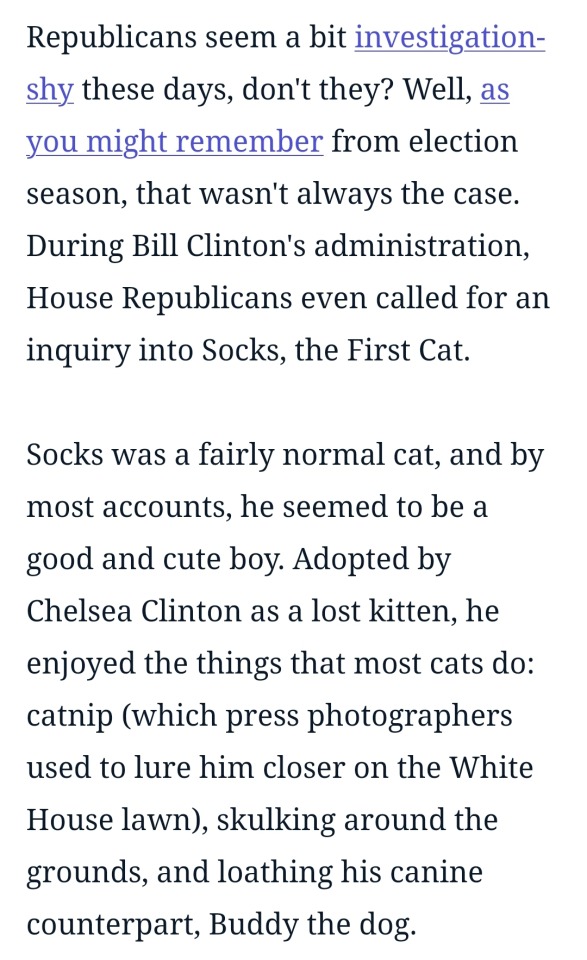

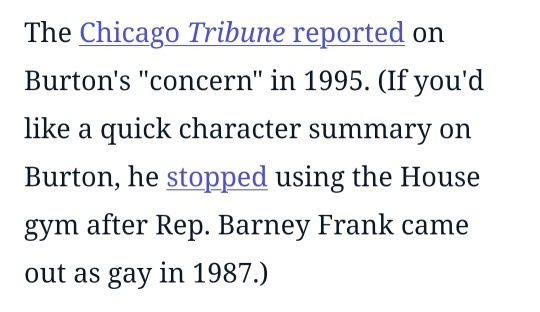
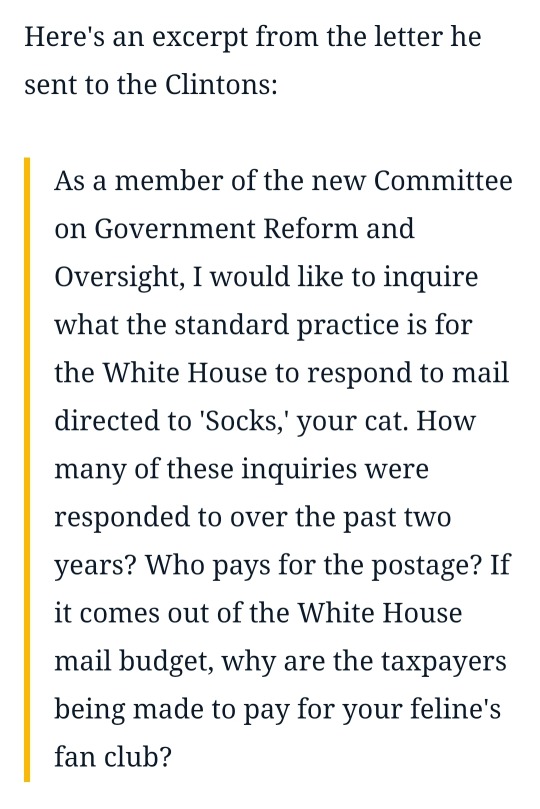
What a loser [x]
#was googling socks to find pictures and came across this lmao#this is some real geek ass shit imagine being this guy lol#always hilarious how angry republicans get when democrats are popular with people in a wholesome way republicans never are lol#made yourselves into the party of being cartoonishly evil but still deeply resent dems for having better optics and reputations. SAD!#politics#🔗#⭐#socks clinton#😺
944 notes
·
View notes